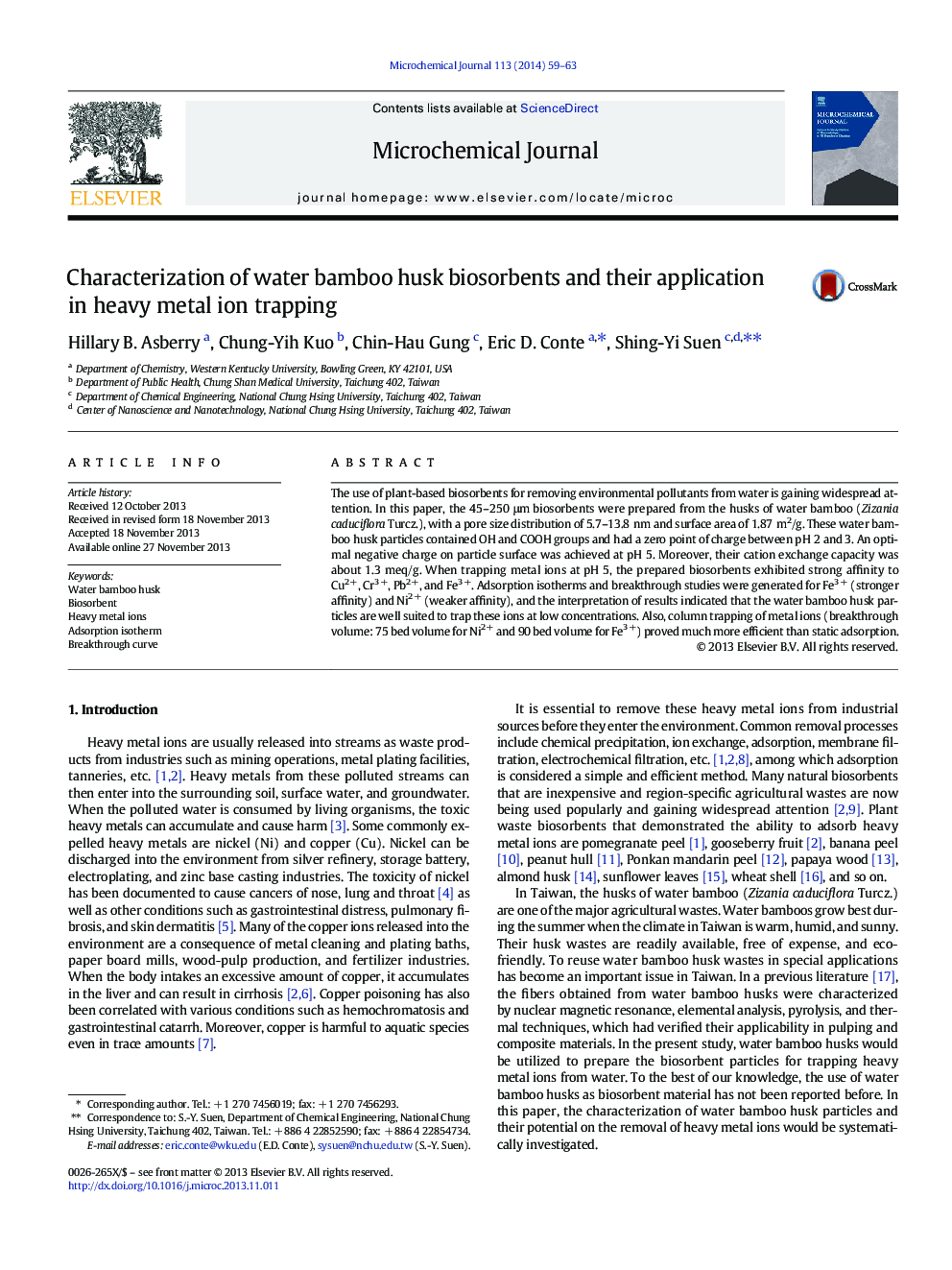| Article ID | Journal | Published Year | Pages | File Type |
|---|---|---|---|---|
| 7643238 | Microchemical Journal | 2014 | 5 Pages |
Abstract
The use of plant-based biosorbents for removing environmental pollutants from water is gaining widespread attention. In this paper, the 45-250 μm biosorbents were prepared from the husks of water bamboo (Zizania caduciflora Turcz.), with a pore size distribution of 5.7-13.8 nm and surface area of 1.87 m2/g. These water bamboo husk particles contained OH and COOH groups and had a zero point of charge between pH 2 and 3. An optimal negative charge on particle surface was achieved at pH 5. Moreover, their cation exchange capacity was about 1.3 meq/g. When trapping metal ions at pH 5, the prepared biosorbents exhibited strong affinity to Cu2 +, Cr3 +, Pb2 +, and Fe3 +. Adsorption isotherms and breakthrough studies were generated for Fe3 + (stronger affinity) and Ni2 + (weaker affinity), and the interpretation of results indicated that the water bamboo husk particles are well suited to trap these ions at low concentrations. Also, column trapping of metal ions (breakthrough volume: 75 bed volume for Ni2 + and 90 bed volume for Fe3 +) proved much more efficient than static adsorption.
Related Topics
Physical Sciences and Engineering
Chemistry
Analytical Chemistry
Authors
Hillary B. Asberry, Chung-Yih Kuo, Chin-Hau Gung, Eric D. Conte, Shing-Yi Suen,
